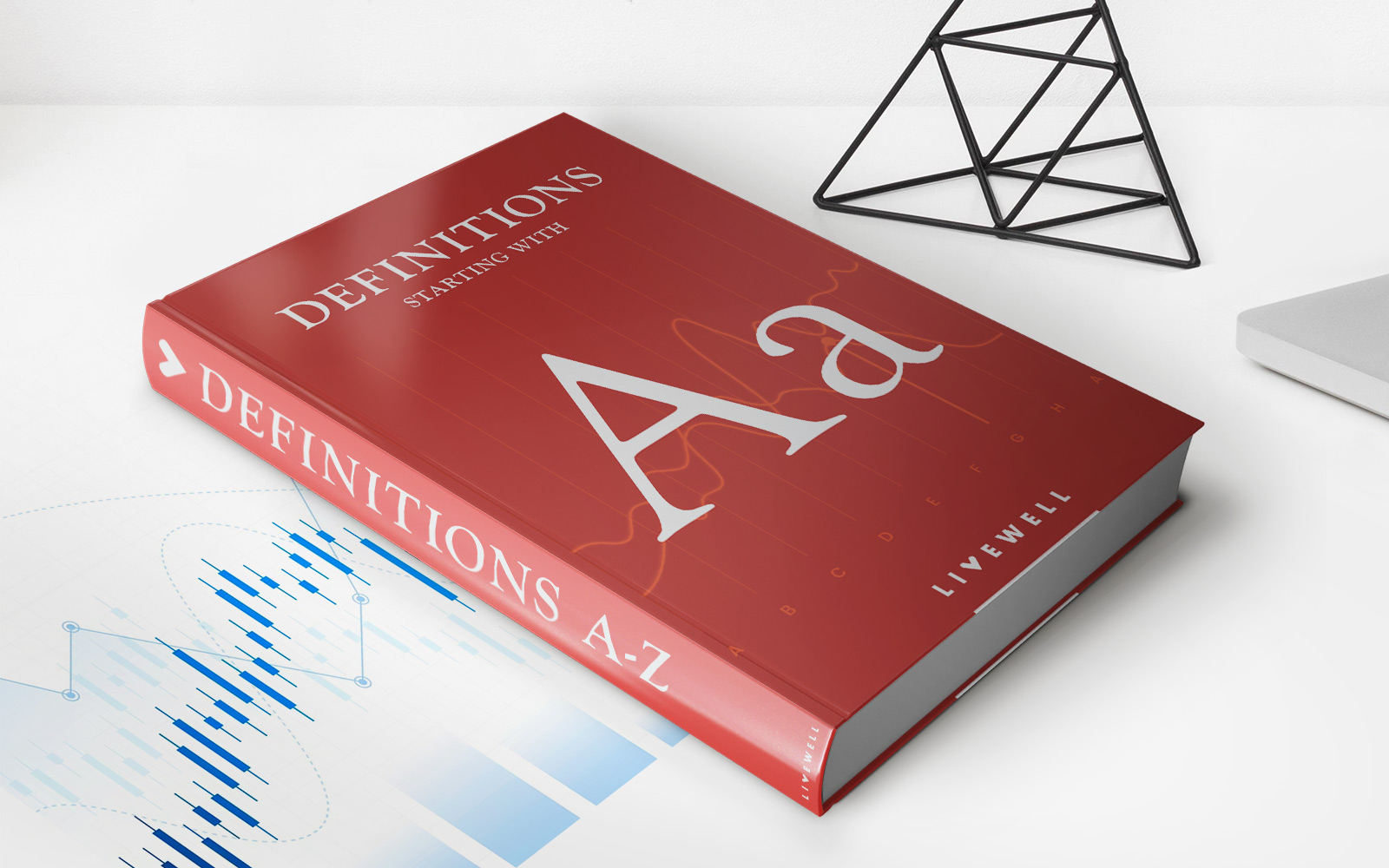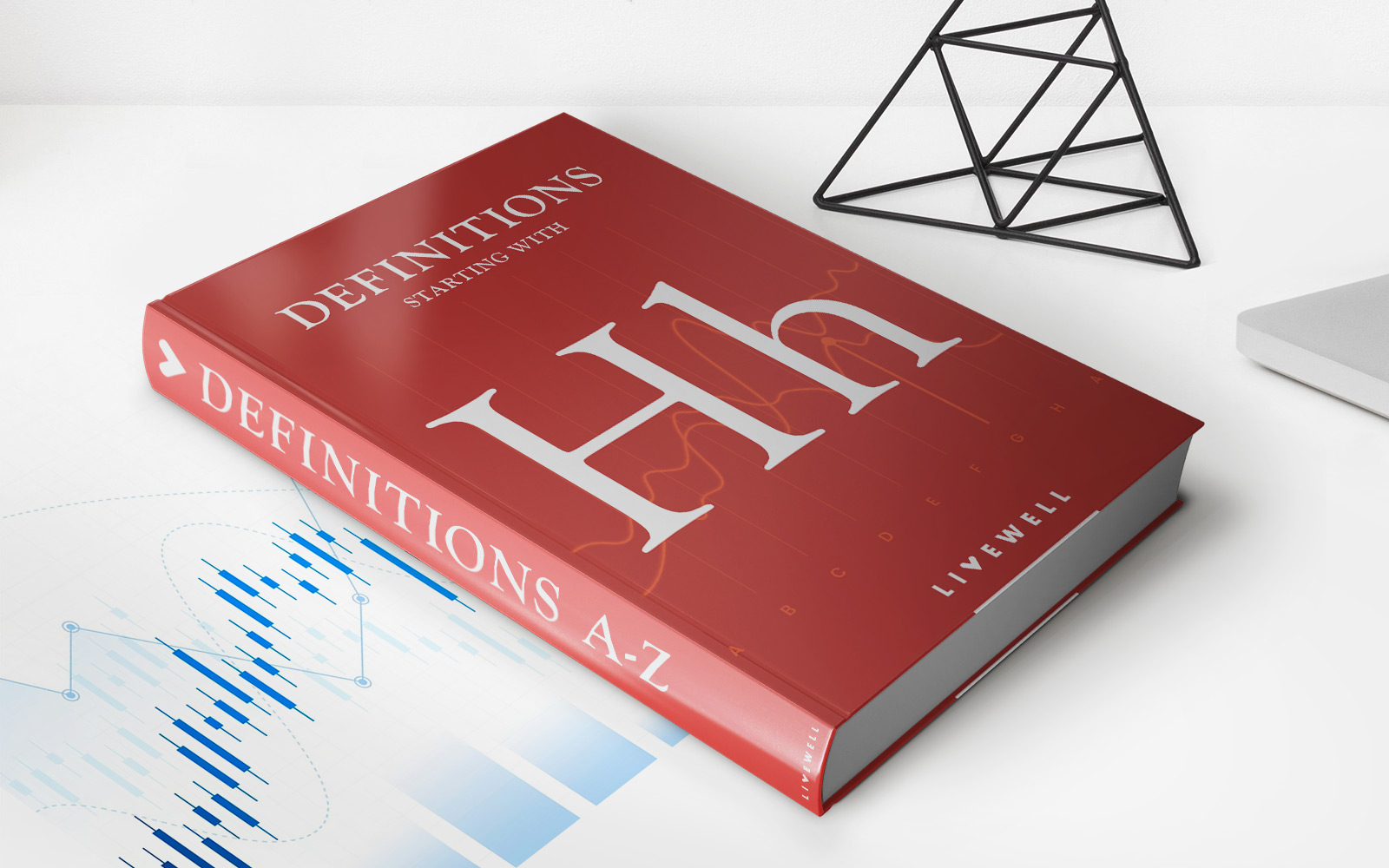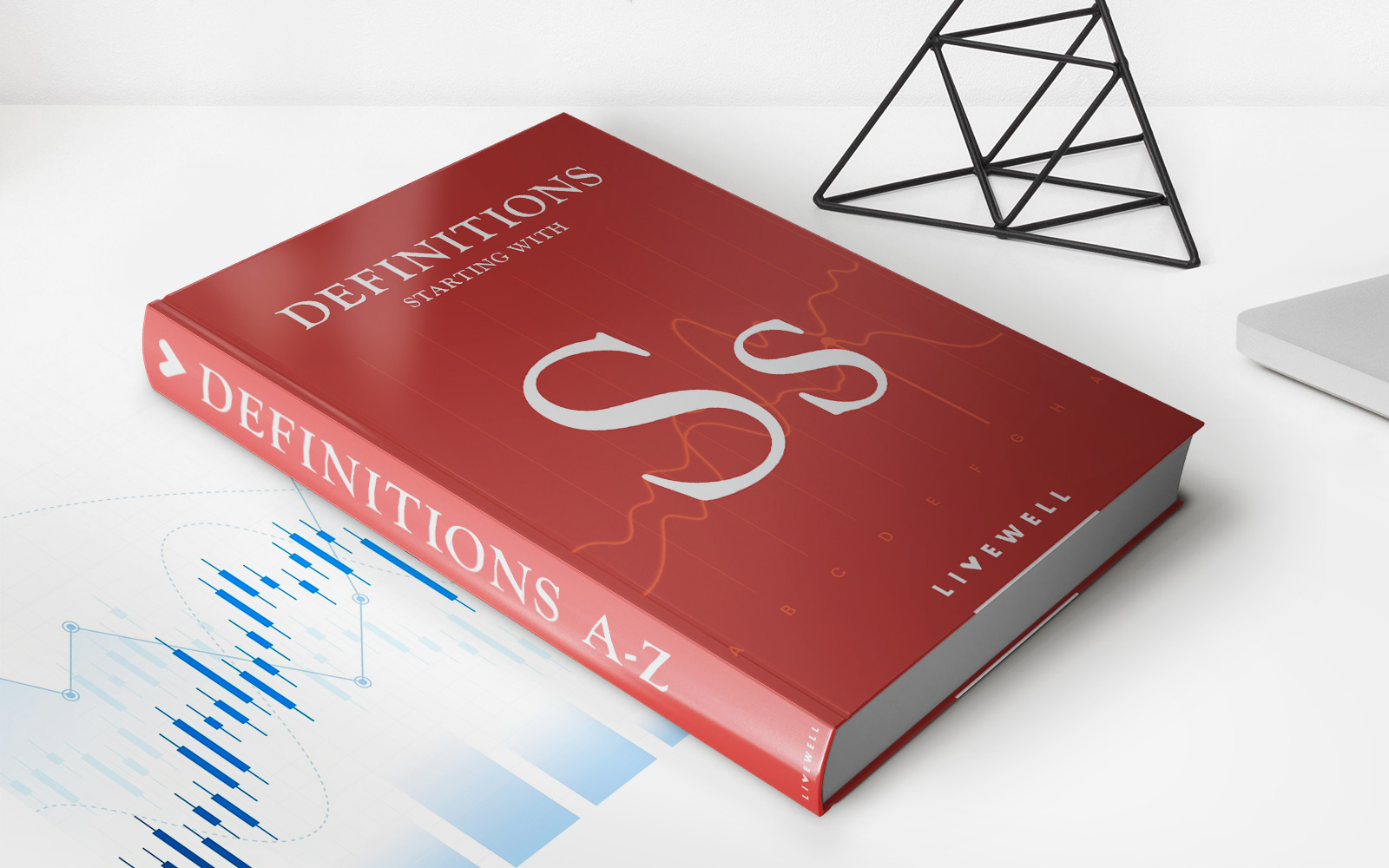

Finance
Why Should You Purchase Insurance?
Published: November 15, 2023
Discover the importance of purchasing insurance for your financial well-being. Protect your finances and gain peace of mind with the right insurance coverage.
(Many of the links in this article redirect to a specific reviewed product. Your purchase of these products through affiliate links helps to generate commission for LiveWell, at no extra cost. Learn more)
Table of Contents
Introduction
Insurance is a crucial aspect of financial planning that provides protection against unexpected events and helps secure your future. Whether it’s a health issue, a natural disaster, or a car accident, having insurance can provide you with the necessary financial support to navigate through these challenging circumstances.
Insurance works on the principle of risk management, allowing individuals, businesses, and organizations to transfer the financial burden of potential losses to an insurance provider. In exchange for a premium, the insurance company agrees to cover the costs or damages, providing the much-needed financial assistance when it is needed the most.
While insurance coverage can vary widely depending on the type of policy and the insurance provider, the underlying benefit remains the same – peace of mind. Knowing that you are protected against life’s uncertainties allows you to live with confidence and focus on your personal and financial goals.
In this article, we will explore some of the key reasons why you should consider purchasing insurance. From protecting yourself and your assets to meeting legal requirements, insurance plays a vital role in safeguarding your finances and ensuring a brighter future.
Protection against Unexpected Events
Life is full of uncertainties, and unexpected events can occur at any time. From natural disasters to accidents, these events can have a significant impact on your finances. Having insurance coverage provides a safety net that can help you recover from such unexpected situations.
For example, home insurance can protect your property in the event of fire, theft, or natural disasters like earthquakes or floods. It can cover the cost of rebuilding or repairing your home, replacing damaged belongings, and even providing temporary accommodation if needed.
Similarly, auto insurance is essential to protect you from the financial consequences of a car accident. It helps cover the costs of vehicle repairs, medical expenses, and legal liabilities if you are responsible for causing an accident.
Insurance also plays a crucial role in safeguarding your family’s financial future. Life insurance ensures that if something happens to you, your loved ones are taken care of financially. It can provide a lump sum payout to cover expenses such as mortgage payments, education costs, and everyday living expenses.
Furthermore, insurance policies like disability insurance and critical illness insurance provide income protection and financial support if you are unable to work due to injury, illness, or a critical medical condition. These policies can help cover medical bills, rehabilitation costs, and provide financial stability when you are unable to earn an income.
By having insurance coverage, you can protect yourself and your loved ones from the financial burdens that unexpected events can bring. It allows you to focus on recovery and rebuilding, knowing that you have the necessary financial support to overcome adversity.
Financial Security
Insurance plays a vital role in providing financial security for individuals and businesses alike. It acts as a shield against potential financial losses and ensures that you are protected in times of need.
One of the primary benefits of insurance is its ability to mitigate the risk of financial ruin. Whether it’s a major medical expense, a lawsuit, or damage to your property, the financial impact can be significant. Insurance coverage helps distribute the risk among a large pool of individuals or businesses, making it more manageable for everyone involved.
For individuals, insurance can provide protection for their most valuable assets, such as their home, car, or personal belongings. By having adequate coverage in place, you can avoid the financial strain of having to pay for costly repairs, replacements, or legal settlements out of pocket.
Businesses also rely on insurance to protect their operations and assets. A single lawsuit or a catastrophic event can potentially cripple a business if it doesn’t have the appropriate coverage. Business insurance, such as general liability insurance, property insurance, and professional liability insurance, helps safeguard against financial losses associated with accidents, property damage, legal disputes, and more.
Moreover, insurance can provide financial security in retirement. Retirement plans like annuities and pension plans ensure a steady income stream during your golden years. They offer peace of mind, knowing that you’ll have a reliable source of income to support your lifestyle and cover your expenses long after you’ve stopped working.
By securing your financial future through insurance, you can protect yourself from unexpected expenses, litigation costs, and the financial hardships that may arise. It provides a safety net that helps maintain your financial stability and allows you to focus on achieving your long-term financial goals.
Peace of Mind
One of the most significant benefits of having insurance is the peace of mind it brings. Knowing that you are protected against unforeseen events and potential financial hardships can alleviate stress and anxiety, allowing you to live your life with greater confidence and security.
Life is filled with uncertainties, and no one can predict what the future holds. However, having insurance coverage gives you the reassurance that you are prepared for whatever comes your way. Whether it’s a medical emergency, a natural disaster, or a loss of income, insurance provides a safety net that allows you to face these situations with confidence.
Imagine experiencing a devastating event like a fire or a break-in at your home. Without insurance, the financial burden of repairing or replacing your belongings can be overwhelming. However, with the right insurance coverage, you can rest easy knowing that you’ll be able to recover and rebuild without a significant financial setback.
Similarly, health insurance provides peace of mind when it comes to medical expenses. Whether it’s routine check-ups, surgeries, or emergency hospital visits, medical costs can add up quickly. Having health insurance coverage ensures that you can access the necessary healthcare services without the fear of exorbitant expenses and financial hardship.
Peace of mind also extends to knowing that your loved ones will be taken care of in the event of your passing. Life insurance provides a financial safety net for your family, ensuring that they have the means to cover funeral expenses, pay off debts, and maintain their standard of living without worry. This knowledge allows you to enjoy the present while knowing that your loved ones will be financially secure in the future.
Whether it’s protecting your assets, ensuring your health and well-being, or safeguarding your loved ones’ future, insurance offers peace of mind that money alone cannot buy. It provides a sense of security and stability, allowing you to live your life with greater peace and confidence.
Legal Requirements
Insurance is not just a matter of personal choice; in many cases, it is a legal requirement. Various forms of insurance are mandated by law to protect individuals, businesses, and society as a whole.
One of the most common examples of mandatory insurance is auto insurance. Almost every state or country requires drivers to have at least a minimum level of auto insurance coverage to legally operate a vehicle. This is to ensure that if an accident occurs, there is a means to cover the damages and medical expenses of any involved parties.
Similarly, employers are often required by law to provide workers’ compensation insurance, which covers employees who suffer work-related injuries or illnesses. This type of insurance provides financial support for medical expenses, rehabilitation costs, and lost wages for injured workers.
Legal requirements for insurance also extend to businesses. For instance, commercial liability insurance may be mandatory for certain professions or industries to protect clients and customers from potential harm or financial losses due to business activities.
Additionally, certain forms of insurance are required for specific activities or circumstances. Travel insurance may be necessary when traveling to certain countries or engaging in certain high-risk activities, while mortgage lenders often require homeowners’ insurance to protect their investment.
By mandating insurance, the law ensures that individuals and businesses take responsibility for mitigating potential risks and protecting the interests of others. It aims to create a more secure and stable society by providing a safety net for unforeseen events.
It is essential to understand and comply with the legal requirements for insurance in your jurisdiction to avoid potential legal consequences. Adhering to these requirements not only helps protect your financial well-being but also contributes to the overall welfare of your community.
Coverage for Assets
Your assets represent your hard-earned investments and the tangible items that contribute to your daily life. Insurance provides essential coverage for these assets, offering financial protection in case of damage, loss, or theft.
Homeowners insurance is one of the most common forms of asset coverage. It protects your property and belongings from risks such as fire, theft, vandalism, and natural disasters. With homeowners insurance, you can rest assured that if your home is damaged or your personal belongings are lost or stolen, you will receive compensation to repair or replace them.
Auto insurance is another essential form of asset coverage. It not only protects your vehicle in case of accidents, but also provides liability coverage, protecting you financially if you are at fault in a collision that causes injury or damage to others. Furthermore, comprehensive coverage can protect your vehicle from theft, vandalism, and other non-accident-related incidents.
If you own valuable assets such as artwork, jewelry, or collectibles, specialized insurance coverage may be necessary to protect and preserve their value. These policies provide additional coverage for specific items that may exceed the limits of a standard homeowners insurance policy.
Business owners also need asset coverage to protect their investment and ensure the continuity of their operations. Commercial property insurance covers buildings, equipment, inventory, and other physical assets against damage or loss caused by various perils. This coverage is vital in safeguarding the financial stability of a business in the event of unforeseen circumstances.
Insurance coverage for assets is not limited to physical belongings. It extends to intangible assets as well, such as intellectual property. Copyright, trademark, and patent insurance can protect against the unauthorized use or infringement of intellectual property rights, ensuring that the value of these assets is preserved.
By having appropriate insurance coverage for your assets, you are safeguarding the financial value and emotional significance of what you own. Insurance provides peace of mind and enables you to enjoy your possessions without the constant worry of potential losses or damages.
Health and Medical Expenses
Your health is one of your most valuable assets, and having proper health insurance coverage is essential to ensure that you can access the medical care you need without incurring overwhelming expenses.
Medical expenses can quickly add up, ranging from routine check-ups to emergency hospital visits and specialized treatments. Without health insurance, these costs can be financially burdensome, potentially leading to high levels of debt or even the avoidance of necessary medical care.
Health insurance provides coverage for a wide range of medical services, including doctor visits, hospitalization, surgeries, medications, and preventive care. With a health insurance policy in place, you can have peace of mind, knowing that you have financial protection against unexpected medical expenses.
One of the primary benefits of health insurance is the ability to access a network of healthcare providers at negotiated rates. Insurance companies have established relationships with doctors, hospitals, and clinics, allowing you to receive the care you need at reduced costs. In-network providers typically have pre-negotiated rates, which can significantly lower your out-of-pocket expenses.
In addition, health insurance provides coverage for preventive care, such as vaccinations, screenings, and wellness exams. These services can help detect and address potential health issues before they become more serious and costly to treat.
Furthermore, health insurance can offer coverage for specialized treatments, chronic conditions, and prescription medications. Without insurance, the cost of managing these health concerns can be financially burdensome. Having coverage ensures that you can afford the necessary treatments and medications to maintain your health and well-being.
Health insurance also provides a safety net in the event of a medical emergency. Medical emergencies can happen unexpectedly and require immediate attention. Without insurance, the cost of emergency medical care, ambulance services, and hospital stays can be staggering. Having health insurance coverage helps alleviate the financial stress during these trying times.
By having health insurance, you can prioritize your health and well-being without the fear of exorbitant medical expenses. It allows you to seek timely medical attention, access quality healthcare services, and focus on your recovery without the added burden of financial strain.
Retirement and Savings
Planning for retirement is essential to ensure a financially secure and comfortable future. Insurance plays a significant role in retirement planning by providing options for long-term savings and income protection.
One way insurance contributes to retirement savings is through annuities. An annuity is a financial product that offers regular payments for a fixed period or for the rest of your life, providing a reliable and predictable income stream during retirement. Annuities can be purchased over time or with a lump sum payment and are often used as a supplement to other retirement savings vehicles, such as retirement accounts.
Another aspect of retirement planning is income protection. Long-term care insurance helps cover the costs of assistance with activities of daily living, such as bathing, dressing, and mobility due to aging or a chronic illness. This insurance provides financial relief, ensuring that you have the necessary funds to pay for long-term care expenses while protecting your retirement savings from depletion.
Furthermore, life insurance can be an effective tool for retirement planning. Permanent life insurance policies accrue cash value over time, which can be accessed through policy loans or withdrawals. These funds can serve as a source of supplemental income during retirement or be used to cover unexpected expenses. Additionally, life insurance death benefits can provide a financial safety net for your loved ones, allowing them to maintain their lifestyle and financial security even after you’re gone.
Insurance also provides a sense of security when it comes to retirement planning. By having the necessary coverage in place, you can protect your assets and savings from unexpected events that could jeopardize your retirement plans. Whether it’s protecting your home, your health, or your income, insurance ensures that you have the financial resources to handle unforeseen circumstances without derailing your retirement goals.
It’s important to consider insurance as part of your comprehensive retirement planning strategy. By leveraging insurance options, you can build a solid foundation for a secure and prosperous retirement, securing your financial future and providing peace of mind.
Business and Commercial Insurance
For businesses of all sizes, having adequate insurance coverage is crucial to protect against potential risks and liabilities. Business and commercial insurance provides financial protection, ensuring the continuity of operations and safeguarding the interests of the company, its employees, and its stakeholders.
One of the primary types of business insurance is general liability insurance. This coverage protects your business from claims of property damage, bodily injury, and personal injury arising from your business operations. In the event of a lawsuit, general liability insurance can cover legal expenses, court judgments, and settlements, providing financial peace of mind.
Property insurance is another essential component of business insurance. It protects your physical assets, including buildings, equipment, inventory, and supplies, from perils such as fire, theft, vandalism, and natural disasters. Property insurance coverage ensures that your business can quickly recover from losses, minimizing disruptions and financial setbacks.
Business interruption insurance is designed to provide protection when an unexpected event or disaster disrupts your business operations. It helps cover the loss of income and ongoing expenses during the period of interruption, enabling your business to stay afloat and recover more smoothly.
Professional liability insurance, also known as errors and omissions insurance, is essential for businesses that provide professional services. It protects against claims of negligence, errors, or omissions, ensuring that you have the necessary financial resources to address any professional liability issues that may arise.
Commercial auto insurance is necessary if your business owns vehicles or if your employees use personal vehicles for work purposes. It provides coverage for accidents, vehicle damage, and liability claims, protecting your business from potential financial losses and legal liabilities.
Workers’ compensation insurance is mandated in many jurisdictions and covers medical expenses, lost wages, and rehabilitation costs for employees who suffer work-related injuries or illnesses. It not only safeguards the well-being of your employees but also protects your business from potential lawsuits and penalties.
Whether you are a small business owner or a large corporation, having the right business and commercial insurance coverage is essential. It helps mitigate financial risks, protects your assets, and ensures the continuity of your business in the face of unexpected events or legal liabilities.
Conclusion
Insurance is a fundamental component of financial planning, offering protection, security, and peace of mind in various aspects of our lives. Whether it’s protecting against unexpected events, providing financial security, fulfilling legal requirements, or covering our valuable assets, insurance plays a vital role in safeguarding our present and securing our future.
By having insurance coverage, we can navigate through life’s uncertainties with confidence, knowing that we have a safety net in place. It allows us to face unexpected events, such as accidents, natural disasters, or health issues, without the fear of crippling financial burdens.
Insurance also contributes to our financial security by mitigating the risks of potential losses or liabilities. It ensures that our most valuable assets, such as our homes, vehicles, and businesses, are protected against damage, theft, or legal disputes.
Furthermore, insurance provides peace of mind, allowing us to focus on our personal and professional pursuits without the constant worry of what may happen. Knowing that we are financially protected enables us to live our lives with greater confidence, security, and ease.
Moreover, insurance helps us meet legal requirements, ensuring that we comply with regulations and protect the interests of others. Whether it’s auto insurance, workers’ compensation, or liability coverage, adhering to these mandates not only prevents legal consequences but also contributes to the overall welfare of our communities.
Lastly, insurance plays a critical role in retirement planning and long-term savings. It provides options for income protection, annuities, and asset accumulation, allowing us to secure our financial future and enjoy a comfortable retirement.
In conclusion, insurance is an essential tool in our financial toolkit. It is a means of protection, security, and peace of mind, providing the necessary support to overcome unexpected challenges. By understanding the importance of insurance and acquiring the right coverage, we can ensure a brighter and more secure future for ourselves, our loved ones, and our businesses.














